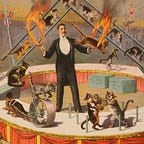Early African American Women Poets
Though they might not all be well-known today, Black women poets left their mark on America as early as colonial times. Let’s explore a few of these women born before 1900: Phillis Wheatley, Olivia Ward Bush-Banks, Alice Dunbar Nelson, Angelina Weld Grimké, and Effie Lee Newsome.
Phillis Wheatley (1753–1784)
Enslaved for much of her life, Wheatley was the first African American and second American woman to publish a book of poems.
“On Being Brought from Africa to America” by Phillis Wheatley
’Twas mercy brought me from my Pagan land,
Taught my benighted soul to understand
That there’s a God, that there’s a Saviour too:
Once I redemption neither sought nor knew.
Some view our sable race with scornful eye,
“Their colour is a diabolic die.”
Remember, Christians, Negros, black as Cain,
May be refin’d, and join th’ angelic train.
Olivia Ward Bush-Banks (1869–1944)
Born to a Montauk mother and a father of Portuguese, East Indian, and African descent, Bush-Banks often wrote about the status of Indigenous and Black Americans.
from “Crispus Attucks” by Olivia Ward Bush-Banks
In face of death and danger,
He met the foe, this soldier true,
Till, charging full upon them,
Their bayonets had pierced him through.He fell, and o’er the pavement
A Negro’s blood was flowing free.
His sable hand was foremost
To strike the blow for liberty.
Alice Dunbar Nelson (1875–1935)
Born in New Orleans, Nelson was a political activist for women’s suffrage and civil rights, a journalist, a public speaker, and the author of short stories, essays, diaries, and poetry.
“Summit and Vale” by Alice Dunbar Nelson
The light hangs over the mountain top,
But gray and misty the plain;
The sun’s a-glow in eternal snow,
But down in the valley, the rain.
And life is so, the sun a-glow
On the mountains far, while the rain’s below.
Angelina Weld Grimké (1880–1958)
Born to a white woman and the son of a white slave owner and an enslaved woman of color, Grimké has recently received recognition as a lesbian poet.
“The Black Finger” by Angelina Weld Grimké
I have just seen a most beautiful thing,
Slim and still,
Against a gold, gold sky,
A straight black cypress,
Sensitive,
Exquisite,
A black finger
Pointing upwards.
Why, beautiful still finger, are you black
And why are you pointing upwards?
Effie Lee Newsome (1885–1978)
With poems included in many leading journals of the Harlem Renaissance, Newsome was one of the first Black American poets who primarily wrote poems for children.
from “The Bronze Legacy” by Effie Lee Newsome
’Tis a noble gift to be brown, all brown,
Like the strongest things that make up this earth,
Like the mountains grave and grand,
Even like the very land,
Even like the trunks of trees —
Even oaks, to be like these!
God builds His strength in bronze.
This post is based on a Women’s History Month project for the Livonia Equity and Anti-Racism Network. You can watch the same content in video form via the Facebook link below.
